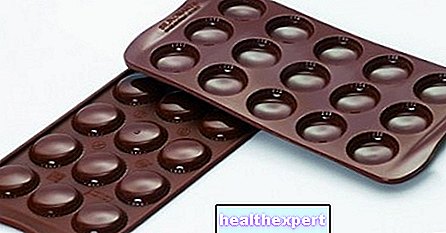Mango: properties and benefits of the exotic fruit par excellence
Mango is increasingly the protagonist on our tables in many tasty recipes. This tropical fruit has a long history, but in Italy it was discovered how super food only in recent years. In fact, thanks to its beneficial nutritional properties, mango is an excellent ally for health and for cosmetic treatments. Normally, it is eaten raw, after having carefully removed the skin and cut it in the correct way. How you do it? Just watch this short video to find out!
The origin of the mango, a fruit discovered only "recently"
For centuries, the mango plant (Mangifera indica L.) has grown in various tropical countries, especially in India which, even today, is its largest producer. It has been noted that in the Indian sub-continent more than one hundred varieties of mango have been recognized, not all of them known and marketed abroad. As for the main varieties, they are now grown and exported by all tropical climate states.
This fruit entered Italian culture and cuisine late compared to other European countries. For example, in Great Britain, also thanks to its direct link with India for the colonial question, mangoes began to be consumed as early as the second half of the twentieth century, when in Italy it was still considered a food for the few and for Only in recent years has mango consumption increased considerably, thanks both to its use in so-called "innovative kitchens" and to the discovery of all its beneficial properties in terms of health.
See also



The nutritional values of mango
According to experts, mango is not a particularly caloric fruit. In fact, 100 grams of its pulp contains 56 calories. Its glycemic index, however, is considered average for the level of sugars present. Precisely for this aspect, it is considered a very suitable fruit for athletes because it can provide an "instant dose of energy. At the same time, careful and controlled consumption is recommended for those who follow a low-calorie diet. In this circumstance, better. introduce it in your diet at breakfast or as a snack, avoiding its intake at the end of main meals.

The properties of mango
In addition to calories, it is important to dwell on the surprising beneficial properties of mango. First of all, it is rich in mineral salts, especially potassium and magnesium, the levels of which present in the fruit cover a large part of a person's daily needs. Potassium helps regulate blood pressure, while magnesium promotes the well-being of the nervous system.
Furthermore, mango contains several vitamins, in particular vitamins A, C and E. Vitamin A is the ideal ally for the respiratory system, while C has always been famous for its function that strengthens and protects the system. immune. Finally, vitamin E is one of the most powerful antioxidants.
Finally, mango is rich in gallic acid, lupeol, a molecule with powerful anti-inflammatory and anti-carcinogenic properties, and a polyenol called mangiferin, which has analgesic, antidiabetic and cardioprotective benefits.
The health benefits of mango
Thanks to its values and nutritional properties, mango brings a number of truly remarkable health benefits. For one thing, this exotic fruit boasts amazing effects against constipation and water retention. In fact, it can be defined as a laxative and a natural diuretic, recommended for all those who suffer from a lazy bowel, from imperfections such as cellulite, and / or who wish to lose weight. All this is explained by its satiating properties.
Then, the combination of vitamin A, C, gallic acid and lupenol results in powerful antioxidant and anticancer actions. While vitamins protect against aging, lupenol fights tumors in various areas of the body, including the pancreas, colon, prostate and breast.
Furthermore, we cannot forget all those benefits related to strengthening the immune system - especially against typical flu diseases - and diabetic prevention. This is because, if the glycemic index of mango makes it unsuitable for those who already suffer from diabetes, several studies have highlighted how its properties can, however, be a panacea to prevent it.
Finally, along with foods such as blueberries, nuts and oats, the exotic fruit par excellence is counted among the "foods for the mind". Since it contains vitamin B6, it helps to keep mood in balance and to regulate sleep activity. In addition, it has a beneficial action against stress and depression, calming their effects.

The cosmetic benefits of mango
However, mango is not only an ally for our health, but also for our beauty. It has been noted how its intake for both internal use - thanks to nutrition - and external use improves the well-being of the skin and hair. In particular, vitamins A and C together with beta-carotene are antiaging par excellence and increase the production of collagen. All this causes the aging of the skin to be delayed, favoring its compactness and shine. Similarly, mango extracts or pulp help in case of dry skin because they give it elasticity, while in the form of butter or oil it is an excellent remedy against dull and damaged hair.

The uses of mango in cooking
Thanks to its sweet and sugary yet refreshing flavor, mango is a perfect ingredient for many recipes. Now this type of exotic fruit is added not only in fruit salads and desserts, but also in dishes such as salads or main courses to give a tropical and alternative touch. For example, it can be used in a shellfish-based salad - such as the classic shrimp salad - or to make an innovative caprese, made with mango, mozzarella and basil.
Not infrequently, great chefs choose it to give flavor to recipes that have chicken as the main ingredient. Combined with different spices, this fruit will be able to provide the whole dish with a truly remarkable sweet and sour flavor.
Normally only the pulp of the mango is consumed, because its peel, although edible, can lead to allergic dermatitis. Some people who follow a low-calorie diet prefer it dried so that they can comfortably take it as a snack even during the days in the office or away from home. If you don't have a dryer and want to have the same as dried mango to quench your hunger pangs with a healthy snack, you can find it conveniently on Amazon.

Mango-based decoction
As mentioned in the long list of beneficial actions of this type of fruit, there is no shortage of anti-inflammatory ones. To accentuate them, there are several recipes for decoctions that help counter coughs, colds and other flu symptoms.
The first is the one based on mango leaves. Just infuse a few mango leaves in hot water and wait at least 8 hours for them to release their properties. In this way a drink is obtained which is useful both against the typical pathologies of autumn and winter and to prevent diabetes.
For the second decoction recipe, however, you need the peel of one or more fruits. After washing it carefully and cutting it and boiling it in a liter of water for 10 minutes. After that, you just have to filter the decoction and let it cool. It is recommended to consume this drink for a week, at least two times a day.
The uses of mango in cosmetics
To make the most of its beauty benefits, you can use homemade recipes according to your needs. For those suffering from dry skin, a face mask based on mango pulp is recommended. Simply mash the fruit with a fork and apply it evenly on the face, avoiding the eye area. Once the product has been left to rest for 15 minutes, you simply need to rinse it with lukewarm water.
If, on the other hand, you suffer from oily skin, we suggest you make a mask based on mango, plain yogurt and honey. When you have finished mashing the pulp of the fruit into a puree, mix it with the other two ingredients. Spread the mixture on your face and keep it on for 20 minutes. Rinse everything thoroughly.

As for the well-being of the hair, on the other hand, there are various products based on oil or mango butter on the market. In both cases, it is possible to make compresses to leave on for several minutes so that they go to deeply nourish dry and dehydrated hair, favoring the reconstruction of broken ends.
We recommend the Klorane Mango Butter Nourishing Mask, available on Amazon. Thanks to its active ingredients and the absence of parabens or sulphates, this product nourishes and moisturizes your hair, repairing the length. It also helps to regain the natural shine of your hair!
![]()

-shopping.jpg)

